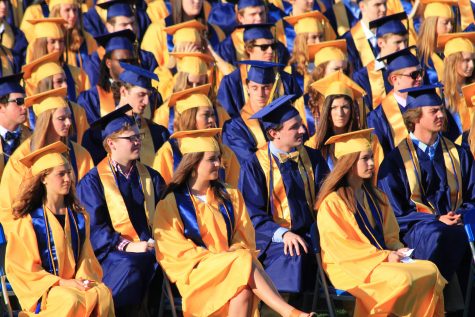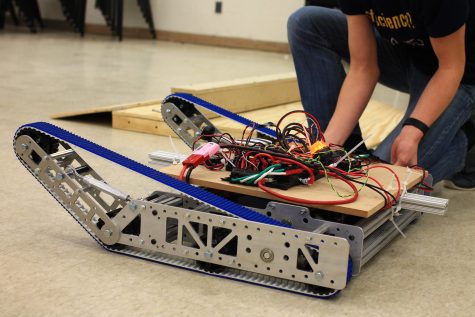Rethinking modern education
A stressed out junior is studying well after midnight for the third night in a row, running on only caffeine and the fear of failure. They slouch at their desk as they struggle to complete their essay, and reading, and worksheet, and study guide. Many students have been wondering if all the work is worth it.
The current education system has worked since the end of the nineteenth century, but it only works for a certain demographic of students: those who benefit from lecture style classes, those who thrive from simple letter grade feed- back, and those who learn through tests and exams.
What the system fails to address, however, are the students who do not learn well in this environment. Alternative systems like the Math Lab which allowed students to retake math tests at the cost of a lunch period, were cut this year after years of success at East. Meanwhile, the school has been spending much of its funding on the IB program – further benefitting the talented students of the school.
There are several factors that contribute to a student’s learning ability, and the current education system benefits only a fraction of students who fall under the “good student” frame around which the system is built.
A major flaw of the current system is that it does not necessarily encourage good learning habits. For the majority, the test and quiz system encourages short term memory, not long term memory.
Students will cram the night before for tests, and although they may perform well on that assessment, this may be only because the information is stored in their short term memory. Unless this information is encoded into their long term memory through repetition, the in- formation they ‘learned’ the night before will soon be forgotten.
Courses often move too quickly for students to retain of all the information learned during the semester. This is especially a problem come exam time, when students are expected to recall months of information with only a few weeks to prepare. Even students who are attentive in class and are studious throughout the semester still have to cram before exams.
Oftem times, students with an interest in the arts or music are the victims of the mentality that athletics and academics are king, as their interests are often thrown to the wayside.
Author, educational advisor and TEDx speaker Sir Ken Robinson explained in one of his speeches how “aesthetic” arts such as theatre and music are hurt by this mindset. “Many highly talented, brilliant, creative people think they’re not because the thing they were good at at school wasn’t valued, or as highly stigmatized.”
At school, nothing is more valuable than academic skill. Students will quickly learn that there may be no reason to put time into the things that bring them happiness personally, because in terms of your actual grades and performance, most of high school doesn’t reward any thing other than putting one’s head down and studying for hours on end. In reality, the world and the people who go through the public education system are far too diverse and varied for there to be “one right way” to be taught.
Public schools value academic intelligence, or be- ing a “good student”. They tell you that you’re intelligent if you get an A. However, there are many other types of intelligence that are al- most completely neglected by the education system.
There is not only “one way” to learn. There is not only “one type” of intelligence. And there is not just“one type” of student.
Legendary scientist Albert Einstein captured the problem that many face the education system in one of his more famous quotes, “Everyone is a genius. But if you judge a fish by its ability to climb a tree, it will live its whole life believing that it is stupid.”
It’s true that creating an education system that tailors to every individuals’ needs is unrealistic and near impossible. However, raising awareness to the fact that every person learns differently can only help students who don’t benefit from the current learning environment.









